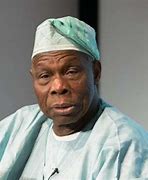Former Nigerian President Olusegun Obasanjo has opened up about how his vocal stance on national and international issues led to his imprisonment during the military regime of the late General Sani Abacha in 1995.
Obasanjo made this revelation while addressing 15 young future African leaders at an interactive session held at the Olusegun Obasanjo Presidential Library (OOPL) in Abeokuta, Ogun State.
The session was part of the Future Africa Leaders Foundation’s mentorship program, which also featured the 10 winners of the prestigious Future Africa Leaders Awards.
In a statement released by Kehinde Akinyemi, Obasanjo’s Special Assistant on Media, the former President reflected on his experiences, highlighting how his refusal to stay silent on pressing issues landed him in prison.
READ ALSO: How I begged Abacha To Spare Obasanjo’s Life- Gowon
“I joined the Army, and at the age of 42, I finished my career as a military officer,” Obasanjo recounted. “But I was still young, energetic, and dynamic.
So, I took to agriculture. During that time, I went into prison, which was not what I wanted. Going into prison is really a challenge because I refused to keep quiet. If there was anything to comment on, I did, and that landed me in prison.”
Obasanjo described his imprisonment as a turning point that shaped his resolve to contribute to Nigeria’s stability.
Reflecting on his decision to run for the presidency in 1999, he explained that the country was on the brink of disintegration, prompting pressure on him to step in and restore order.
READ ALSO: Obasanjo Debunks Death Rumours, Warns Perpetrators of Consequences
The former President also expressed concern over the mounting debt burdens in African nations, attributing them to corruption and mismanagement. “Most of the debts cannot be explained.
Some are due to outright corruption,” he said, emphasizing the need for transparency and accountability in governance.
The interactive session at OOPL was part of Obasanjo’s ongoing efforts to mentor and inspire the next generation of African leaders, drawing lessons from his life and career to address the continent’s pressing challenges.

